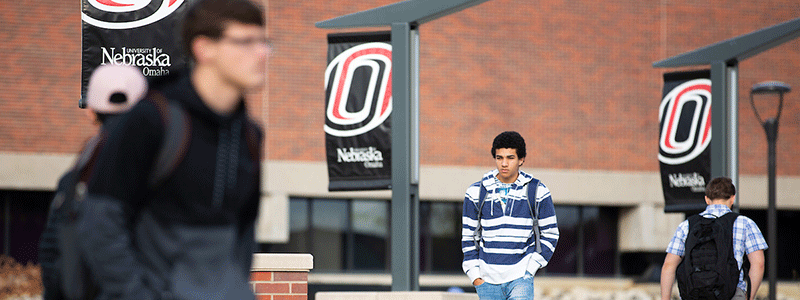
As students transition to college life, some will be at greater risk for developing potentially dangerous drinking patterns than others.
Research suggests that student socializing patterns are often established in the first six weeks of their first year on campus. Factors that can influence high-risk behaviors within a social setting include group drinking norms.
Research shows that parents can have a profound influence on their student’s decisions if they understand the characteristics of the drinking scene young adults will be exposed to, and talk with them about healthy ways to safely navigate that scene.
UNO Alcohol Policy
UNO is a "permit-only" campus, meaning that no one, regardless of age, can consume alcohol on campus property without a permit and there are strict criteria for obtaining a permit.
This includes all:
- Buildings
- Residence halls
- Parking lots
- Dining and conference facilities
View UNO's Alcohol Policy
Code of Conduct
Students should also be aware of local laws and policies practiced in Omaha which may differ from their home communities. The Omaha Police Department regularly conducts patrols to identify and ticket parties causing disruptions. Omaha police regularly issue tickets for MIP, (minor in possession) DUI (driving under the influence) and procuring alcohol to minors.
Not following campus and community policy could result in a campus code of conduct violation and/or legal ramifications.
Good Samaritan Law
On August 30, 2015, Nebraska’s Good Samaritan law took effect. This policy encourages individuals to call 911 for medical help when witnessing or experiencing acute alcohol intoxication without the fear of prosecution for minor in possession.
The policy provides limited immunity for both the caller and the acutely intoxicated person.
The Good Samaritan law is essential to ensuring that people are able to stay alive and receive help when they are in trouble. Please encourage your student to become familiar with the new law and take swift action whenever they are concerned about another person’s well-being.
This type of information is important to share with your student because it dispels the perception that all of their peers are drinking, drinking excessively, or using marijuana/cannabis.
When students realize that they’re not alone in either abstaining from substances or, at the very least, using in moderation, they feel more comfortable declining the invitation to drink or use substances at social events.
In the next section, we'll describe how to have a constructive conversation with your student.